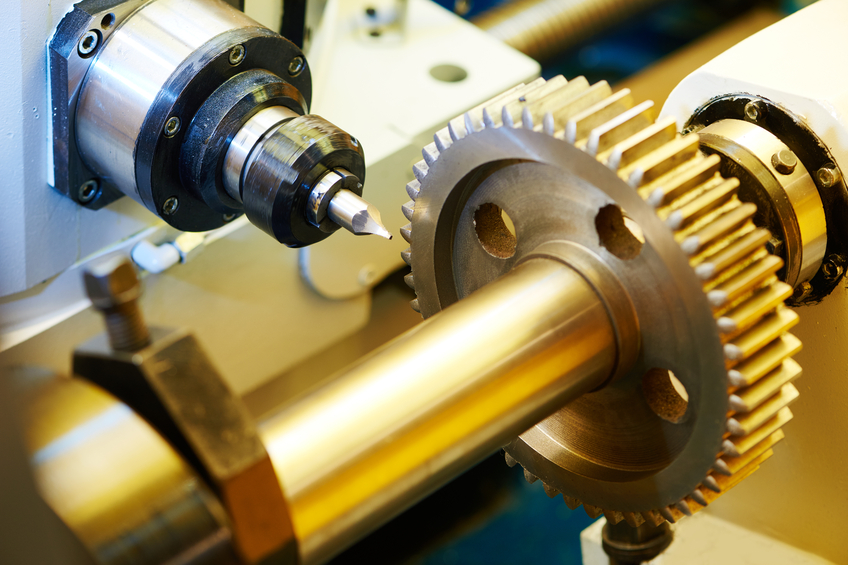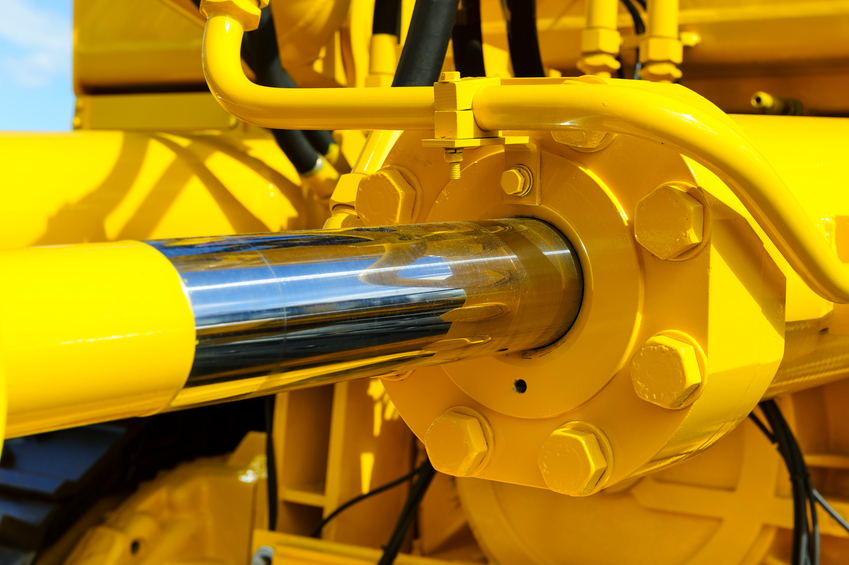Mechanical and Florida Laws, Rules & Ethics 18 PDH Discount Package 2
Courses in this Package
Fluid Flow (M06-001)
Principles of an Internal Combustion Engine (M03-051)
Principles of Hydraulic and Pneumatic Systems (M04-043)
Basic Machines Part 1 (M03-035)
Engineering Laws, Rules and Ethics for Florida Professional Engineers (FL2-006)

This online engineering PDH course discusses the fundamentals of Fluid Flow which is the study of the relationship between the different types of energy in a fluid stream through the use of Bernoulli's equation. The course also discusses the causes of head loss in fluid systems and what factors affect head loss.
This 6 PDH online course is applicable to mechanical and chemical engineers, nuclear facility operators, maintenance personnel, and other technical staff who are interested in understanding the mechanics of fluid flow.
This PE continuing education course is intended to provide you with the following specific knowledge and skills:
- Understanding the Continuity Equation
- Understanding Laminar and Turbulent Flow
- Learning Bernoulli's Equation
- Knowing Head Loss
- Understanding Natural Circulation
- Familiarizing with the different phases of Fluid Flow
- Understanding Centrifugal Pumps
In this professional engineering CEU course, you need to review Volume 3 of DOE-HDBK-1012/1-92, "Thermodynamics, Heat Transfer and Fluid Flow" published by the Department of Energy.
Upon successful completion of the quiz, print your Certificate of Completion instantly. (Note: if you are paying by check or money order, you will be able to print it after we receive your payment.) For your convenience, we will also email it to you. Please note that you can log in to your account at any time to access and print your Certificate of Completion.

This online engineering course presents the operational principles and basic mechanisms of the internal combustion engine.
The power of an internal combustion engine comes from burning a mixture of fuel and air in a small, enclosed space. When this mixture burns, it expands significantly; building pressure that pushes the piston down, in turn rotating the crankshaft. Eventually, this motion is transferred through the transmission and out to the drive wheels to move the vehicle.
The automobile is a familiar object to all of us. The engine that moves it is one of the most fascinating and talked about of all the complex machines we use today. This machine is what we call the internal combustion engine.
This 3 PDH online course is intended for mechanical and industrial engineers, designers, manufacturers and anyone interested in gaining a better understanding of the basics of an internal combustion engine.
This PE continuing education course is intended to provide you with the following specific knowledge and skills:
- Understanding the principles of operation, the different classifications, the measurements and performance standards of an internal combustion engine
- Identifying the series of events /cycles in a gasoline engine
- Identifying the series of events /cycles in a diesel engine
- Understanding the differences between a four-stroke cycle engine and a two-stroke cycle engine
- Recognizing the differences in the types, cylinder arrangements, and valve arrangements of internal combustion engines
- Identifying the terms, engine measurements, and performance standards of an internal combustion engine
Upon successful completion of the quiz, print your Certificate of Completion instantly. (Note: if you are paying by check or money order, you will be able to print it after we receive your payment.) For your convenience, we will also email it to you. Please note that you can log in to your account at any time to access and print your Certificate of Completion.

This online engineering course presents the basic principles of hydraulics and pneumatics along with their various components followed by discussing the maintenance procedures associated with these systems.
In automotive and construction equipment, the terms “hydraulic” and “pneumatic” describe a method of transmitting power from one place to another through the use of a liquid or a gas which obey certain physical laws and principles discussed in this course.
This 4 PDH online course is intended for mechanical and industrial engineers, as well as other technical professionals interested in gaining a better understanding of the principles of hydraulic and pneumatics systems.
This PE continuing education course is intended to provide you with the following specific knowledge and skills:
- Understanding the operating principles of hydraulic systems
- Identifying operation characteristics, component functions, and maintenance procedures of a hydraulic system
- Understanding the operating principles of pneumatic systems
- Identifying operational characteristics and service procedures applicable to heavy-duty compressors
Upon successful completion of the quiz, print your Certificate of Completion instantly. (Note: if you are paying by check or money order, you will be able to print it after we receive your payment.) For your convenience, we will also email it to you. Please note that you can log in to your account at any time to access and print your Certificate of Completion.

This online engineering PDH course discusses the six simple machines: the lever, the block, the wheel and axle, the inclined plane, the screw and the gear. When you familiarize with the principles of these simple machines, you can readily understand the operation of complex machines.
A machine is any device that helps you to do work. It may help by changing the amount of force or the speed of action. Machines may also be used to change the direction of a force or in other cases transform energy; for example, a generator transforms mechanical energy into electrical energy. Complex machines are basically combinations of two or more simple machines.
This 3 PDH online course is applicable to engineers, designers, manufacturers and anyone interested to gain an understanding of basic machine operation.
This PE continuing education course is intended to provide you with the following specific knowledge and skills:
- Learning about the principles of levers, their different classes and mechanical advantages
- Understanding the basics of the block and tackle, their different configurations and mechanical advantages
- Understanding the basics of wheel and axle and understand their mechanical advantages
- Learning about the mechanical advantages of inclined planes
- Familiarizing with the uses of the screw and jack
- Understanding the basics of gears, their different types and mechanical advantages
In this professional engineering CEU course, you need to review Chapters 1 through 6, of the Naval Education and Training Professional Development and Technology Center "Basic Machines" NAVEDTRA 14037 - training course.
Once you complete your course review, you need to take a multiple-choice quiz consisting of twenty (20) questions to earn 3 PDH credits. The quiz will be based on this NAVEDTRA publication.
Upon successful completion of the quiz, print your Certificate of Completion instantly. (Note: if you are paying by check or money order, you will be able to print it after we receive your payment.) For your convenience, we will also email it to you. Please note that you can log in to your account at any time to access and print your Certificate of Completion.

Upon successful completion of the “Engineering Laws, Rules and Ethics for Florida Professional Engineers” course, we will report your PDH credits for this course to the FBPE within 2 business days. Therefore, it is imperative that you indicate your Florida PE license number in your CED account so that we can successfully do so. Once reported, please allow up to 48 hours for the FBPE to update their database.
This online PDH course is a FL approved Engineering Laws, Rules and Ethics course and is being offered by Continuing Education and Development, Inc, a FL approved Continuing Education Provider (CEP No. 0004183).
The first part of this course begins with an overview of the Laws and Rules governing the practice of engineering in the State of Florida (Chapter 1) including:
- Florida Statutes, Chapter 455, “Department of Business and Professional Regulation”
- Florida Statutes, Chapter 471, “Engineering”
- Florida Administrative Code, 61G15, F.A.C., “Florida Board of Professional Engineers”
Then it continues to address the rules amended, adopted or otherwise repealed from 61G15, F.A.C. (Chapter 2) as well as the changes to Chapters 455, F.S. and 471, F.S. (Chapter 3), within the preceding biennium, as applicable.
The second part of this course presents engineering ethics and the principles of professional responsibility (Chapter 4). It further illustrates the application of Chapters 455 and 471, F.S. to a randomly selected set of ethical and disciplinary cases (Chapter 5).
This 2 PDH online engineering course is applicable to Professional Engineers licensed in the State of Florida and who are required to demonstrate continuing professional competency in the Florida Laws, Rules and Ethics as a condition of license renewal. For each renewal period, every licensee must complete eighteen (18) professional development hours as follows:
- One hour must relate to this chapter and the rules adopted under this chapter;
- One hour must relate to professional ethics;
- Four hours must relate to the licensee’s area of practice; and
- The remaining hours may relate to any topic pertinent to the practice of engineering.
This PE continuing education engineering course is intended to provide you with the following specific knowledge and skills:
- Understanding the different Florida laws and rules regulating the practice of engineering in the State of Florida and their application to Professional Engineers
- Learning the rules adopted, amended or repealed from 61G15 within the preceding biennium
- Learning the changes made to Chapters 455, F.S. and 471, F.S. within the preceding biennium
- Understanding ethical behavior and the principles of professional responsibility in the field of engineering
- Understanding the general application of Chapters 455 and 471, F.S. to various ethical and disciplinary cases of Professional Engineers
Upon successful completion of the quiz, print your Certificate of Completion instantly. (Note: if you are paying by check or money order, you will be able to print it after we receive your payment.) For your convenience, we will also email it to you. Please note that you can log in to your account at any time to access and print your Certificate of Completion.